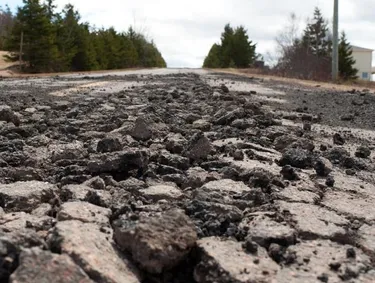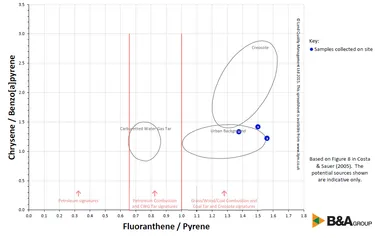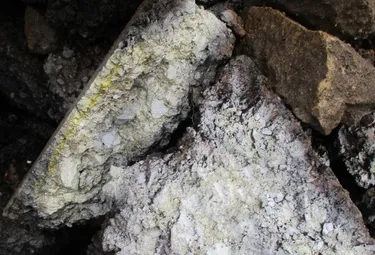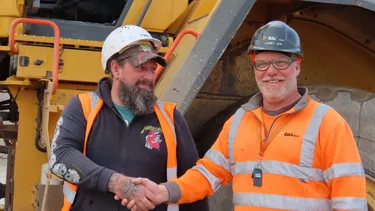
A growing concern in the waste industries is the presence of coal tar in tarmac road surfaces. With more discovered every day, it seems as though the job of safely removing or remediating it will never be completed. In fact, utilities companies alone excavate and repair over 2.5m holes in roads and pavements each year. A daunting job, indeed.
WHEN & WHY DID COAL TAR STOP GETTING USED IN ROAD CONSTRUCTION?
Before the 1980s, tarmac binders and surface courses were derived from coal tar, which is formed as a by-product during the production of coal gas. This is now classified as a hazardous substance under WM3 rules. Since the 80s, petroleum bitumen (made from crude oil) has been used instead, as it is a non-hazardous material and can be recycled, collected and run back through the system safely.
WM3 has specific rules for tarmac waste containing coal tar. Waste is considered hazardous if it contains more than 0.1% coal tar or any coal tar present showing within Benzo a Pyrene being above >50mg/kg.

WHY IS COAL TAR HAZARDOUS?
Coal tar is a class 1 carcinogenic substance (it can cause cancer). Encapsulated in the ground, it’s generally safe to walk over. The problem arises when road surfaces are damaged or worn away, where it becomes a big risk that needs to be dealt with. Older road surfaces are more likely to contain coal tar. However, some newer roads may have been overlaid onto a coal tar surface, so these cannot be disregarded as potential sources of the substance. As it poses a risk to both health and the environment, it’s important that road surfaces containing coal tar are dealt with appropriately.
HOW TO DEAL WITH ROADS CONTAINING COAL TAR

The first step is to identify which surfaces contain coal tar. Core testing involves taking a sample and sending it to a lab for testing. This is a slow process that can take weeks. An alternative to core testing is using PAK spray paint to identify the presence of coal tar. The PAK spray paint reacts with hydrocarbons found in coal tar, changing colour from white to brown or yellow if coal tar is present. The process takes no longer than 15 minutes and can be carried out at different layers of road surface. It’s important to note however that the spray only detects the presence of coal tar and not it’s concentration. This will require further investigation.
HOW TO HANDLE COAL TAR
If coal tar is present, the options for handling it are few. The first is to leave it in situ. In its tarmac-bound state it is relatively inert. Overlaying it is an option. However, this isn’t always practical, depending on several factors.
Another method for dealing with coal tar is bituminous foam treatment. This encapsulates the material, allowing it to be reclassified as Cold Recycled Bound Material. It can then be used as a base layer.
The final option is to excavate the material and dispose of it as hazardous waste.
WHERE SHOULD I BE CONCERNED ABOUT FINDING COAL TAR?
If your site or highway has areas of asphalt that were laid before the early 80’s then there is a high probability the binder used is coal tar. Particular places to start investigating are tarmac driveways and car parks.
HOW CAN B&A GROUP HELP?
B&A Group is one of the small number of sites in the UK, that can remove tarmac containing coal tar under Hazardous consignment notes to a dedicated treatment facility. The hazardous material is received, stored, treated and reused safely and in line with our environmental and sustainability principles, so we can provide you with the assurance that this hazardous waste stream will be dealt with responsibly and at a very competitive price.
One of our core duties is to ensure that tarmac is treated and reused which is a more environmentally favourable option than sending it to waste as landfill.
"Hazardous coal tar is being found in road surfaces up and down the UK, with more discovered every day. Our team can safely remove coal tar from roads and dispose of it according to government Hazardous Waste regulations. To find out more, speak to a member of our team."
If you have any further questions on coal tar, or would like B&A Group to run a site review please don’t hesitate to contact us.


